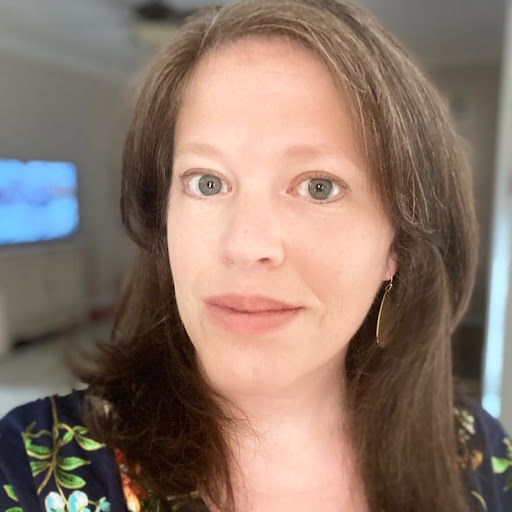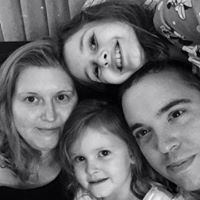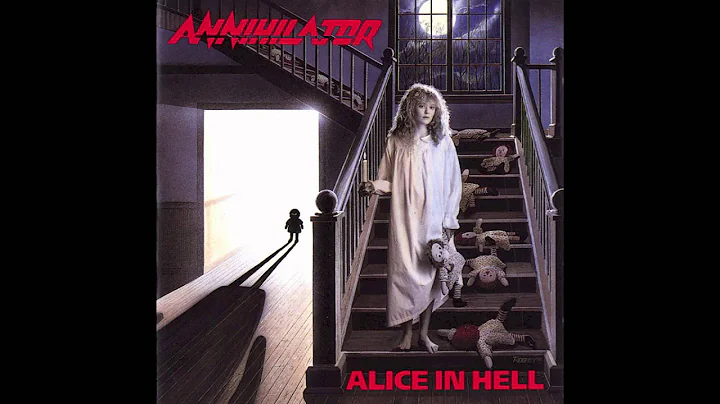Alison Ann Hill
age ~46
from Reisterstown, MD
- Also known as:
-
- Alison A Hill
- Phone and address:
- 4406 Piney Grove Rd, Reisterstown, MD 21136
Alison Hill Phones & Addresses
- 4406 Piney Grove Rd, Reisterstown, MD 21136
- 5909 Brackenridge Ave, Baltimore, MD 21212
- 70 Wilshire Blvd, Burnsville, NC 28714 • 8286754756
- Asheville, NC
- Santa Cruz, CA
Work
-
Company:Dorsey & Whitney LLP
-
Address:
Education
-
Degree:Doctor of Jurisprudence/Juris Doctor (J.D.)
-
School / High School:South Texas College of Law
Ranks
-
Licence:Texas - Eligible To Practice In Texas
-
Date:2012
Resumes

Marketing Associate
view sourceLocation:
Washington, DC
Industry:
Renewables & Environment
Work:
Ecoamerica
Marketing Associate
American Public Health Association
Practicum Student: Climate, Health and Equity
George Washington University Sep 2018 - May 2019
Greenhouse Manager
Freshfarm Foodprints Sep 2018 - May 2019
Intern
American Public Health Association Aug 2017 - Dec 2017
Environmental Health Intern
Marketing Associate
American Public Health Association
Practicum Student: Climate, Health and Equity
George Washington University Sep 2018 - May 2019
Greenhouse Manager
Freshfarm Foodprints Sep 2018 - May 2019
Intern
American Public Health Association Aug 2017 - Dec 2017
Environmental Health Intern
Education:
The George Washington University - Milken Institute School of Public Health 2019 - 2020
Master of Public Health, Masters, Health Science The George Washington University - Milken Institute School of Public Health 2015 - 2019
Bachelors, Sustainability, Public Health Unsw 2018
Amherst Regional High School 2011 - 2015
Master of Public Health, Masters, Health Science The George Washington University - Milken Institute School of Public Health 2015 - 2019
Bachelors, Sustainability, Public Health Unsw 2018
Amherst Regional High School 2011 - 2015
Skills:
Microsoft Office
Nvivo
Egyptian Arabic
Modern Standard Arabic
Customer Service
Elementary Spanish
Shopkeep
Geographic Information Systems
Nvivo
Egyptian Arabic
Modern Standard Arabic
Customer Service
Elementary Spanish
Shopkeep
Geographic Information Systems

Managing Director
view sourceLocation:
419 Kentucky Ave, Berkeley, CA 94707
Industry:
International Affairs
Work:
Vestergaard Frandsen
Managing Director - Lifestraw
Rob Shackleford - Budding Author
Managing Director
Vestergaard Frandsen Sep 2009 - Feb 2012
Climate Concept Development
Johns Hopkins Bloomberg School of Public Health Jul 2008 - Jun 2010
Program Officer - Global Program on Malaria
State of Maryland Department of Health and Mental Hygiene 2007 - 2007
Consultant
Managing Director - Lifestraw
Rob Shackleford - Budding Author
Managing Director
Vestergaard Frandsen Sep 2009 - Feb 2012
Climate Concept Development
Johns Hopkins Bloomberg School of Public Health Jul 2008 - Jun 2010
Program Officer - Global Program on Malaria
State of Maryland Department of Health and Mental Hygiene 2007 - 2007
Consultant
Education:
The Johns Hopkins University 2006 - 2008
Master of Public Health, Master of Business Administration, Masters, Public Health University of California, Santa Cruz 1997 - 2001
Bachelors, Bachelor of Arts, Sociology
Master of Public Health, Master of Business Administration, Masters, Public Health University of California, Santa Cruz 1997 - 2001
Bachelors, Bachelor of Arts, Sociology
Skills:
International Development
Public Health
Program Development
Global Health
Capacity Building
Program Evaluation
International Health
Ngos
Grants
Nonprofits
Reproductive Health
Epidemiology
Community Outreach
Hiv Prevention
Management
Qualitative Research
Public/Private Partnerships
Humanitarian
Public Policy
Public Relations
Health Economics
Corporate Social Responsibility
Infectious Diseases
International Relations
Non Profits
Brand Development
Retail
Strategic Leadership
Strategic Planning
Strategy
Entrepreneurship
Public Health
Program Development
Global Health
Capacity Building
Program Evaluation
International Health
Ngos
Grants
Nonprofits
Reproductive Health
Epidemiology
Community Outreach
Hiv Prevention
Management
Qualitative Research
Public/Private Partnerships
Humanitarian
Public Policy
Public Relations
Health Economics
Corporate Social Responsibility
Infectious Diseases
International Relations
Non Profits
Brand Development
Retail
Strategic Leadership
Strategic Planning
Strategy
Entrepreneurship
Languages:
English

Alison Hill
view source
Senior Surgical Technologist
view sourceWork:
Senior Surgical Technologist

Alison Hill
view source
Alison Hill
view source
Alison Hill
view source
Alison Hill
view sourceLocation:
United States
Lawyers & Attorneys

Alison Maye Hill - Lawyer
view sourceLicenses:
Texas - Eligible To Practice In Texas 2012
Education:
South Texas College of Law
Degree - Doctor of Jurisprudence/Juris Doctor (J.D.)
Graduated - 2012
Degree - Doctor of Jurisprudence/Juris Doctor (J.D.)
Graduated - 2012
Isbn (Books And Publications)







Name / Title
Company / Classification
Phones & Addresses
Vp-Private
AMB PROPERTY HOLDING II CORPORATION
Vice Presi
AMB PROPERTY HOLDING CORPORATION
Us Patents
-
Water Purification Apparatus And Method
view source -
US Patent:20130173458, Jul 4, 2013
-
Filed:Jul 2, 2012
-
Appl. No.:13/540268
-
Inventors:Alison Hill - Baltimore MD, US
Mikkel Vestergaard Frandsen - Lausanne, CH -
International Classification:G06Q 30/00
-
US Classification:705 39
-
Abstract:Method for reducing the carbon footprint of a community by implementation of a water filter project comprises assessment of the viability of a filter system to determine the acceptability of said filter system for implementation in a community as substitute for the sterilization of water by boiling. Filter systems are transported to a community, for example a developing country where water is sterilized by boiling on a routine basis due to the presence of waterborne illnesses. The filter systems are then installed and operated. The volume of water produced by the filtering system is then monitored and usage data is generated and communicated to a database. The volume of carbon credits associated with the usage data is calculated. Information is communicated to a consumer of carbon credits. Funds are then transferred from said consumer to a person or persons, i.e. the project proponent, providing and installing said filter system.
Plaxo

Alison Hill
view source
Alison Hill
view sourcedirector at AHR (UK) Ltd

Alison Hill
view sourceFort Collins, CO

Alison Hills
view sourceFeilding

alison hill fischer
view sourceDenver
Classmates

Alison Hill
view sourceSchools:
Northside Middle School Roanoke VA 2004-2008
Community:
Theresa Dougal, Cindy Spear, Mark Conner

Alison Hill
view sourceSchools:
Byrd Middle School Richmond VA 1998-2001
Community:
Joyce Kondik, Jeff Fazio, Colton Reinhardt, Leslie Jones, Barbara Lawson, Thomas Morgan

Alison Copley (Hill)
view sourceSchools:
Univercity of Missiissippi Oxford MS 1988-1992
Community:
Ted Bean, Jag Khalsa, Jayne Weber, Gregory Burkes, Brent Laird

Alison van Hill
view sourceSchools:
Grayling Elementary School Grayling MI 1984-1986
Community:
Robert Snith

Alison Hill (Elliott)
view sourceSchools:
Cherry Hill East High School Cherry Hill NJ 1981-1985
Community:
Cheryl Durham

Alison Hill
view sourceSchools:
Fremont Elementary School Antioch CA 1997-2001
Community:
Chris Briggs, Greg Vallejo, Karen Edwards, Travis Bonham, Sandra Stuckey

Alison Hill
view sourceSchools:
Michael Wallace Elementary School Dartmouth Swaziland 1990-1997, Admiral Westphal Junior High School Dartmouth Swaziland 1997-2000

Alison Hill
view sourceSchools:
Hingham High School Hingham MA 1965-1969
Youtube
Myspace
Googleplus

Alison Hill
Work:
SPEED Channel - Social Media Producer (2012)
WBTV News 3 - Community Web Producer (2011-2012)
WBTV News 3 - Photographer (2005-2011)
Newschannel 15 - Photographer (2003-2005)
WBTV News 3 - Community Web Producer (2011-2012)
WBTV News 3 - Photographer (2005-2011)
Newschannel 15 - Photographer (2003-2005)
Education:
Ithaca College

Alison Hill
Work:
Turner Broadcasting System - Project Mgr, Digital Research (2002)
Education:
University of Georgia - BBA in Marketing
Tagline:
I'm no stranger to strange.

Alison Hill
Education:
University of Sussex

Alison Hill
Work:
CurrentPR - Partner

Alison Hill

Alison Hill
Tagline:
Be civil to all; sociable to many; familiar with some; friend to few; true love to one; enemy to none.

Alison Hill
About:
i have a lot of existentialistic thoughts and often laugh at inappropriate things. i love my job and my friends and my family and soup.
Tagline:
The human torch was denied a bank loan.

Alison Hill (Maddestmiddl...

Alison Dollarhite Hill
view source
Alison Tankersley Hill
view source
Alison Goodrum Hill
view source
Alison Montbriand Hill
view source
Alison Trachtman Hill
view source
Alison Seibert Hill
view sourceFlickr
Get Report for Alison Ann Hill from Reisterstown, MD, age ~46
![Annihilator - Alison Hell [OFFICIAL VIDEO] Annihilator - Alison Hell [OFFICIAL VIDEO]](https://i.ytimg.com/vi/pTYHYglem-M/hqdefault.jpg?sqp=-oaymwEcCOADEI4CSFXyq4qpAw4IARUAAIhCGAFwAcABBg==&rs=AOn4CLD2H9m7olxhF0pBJKtQsXrRbB3g4w)












